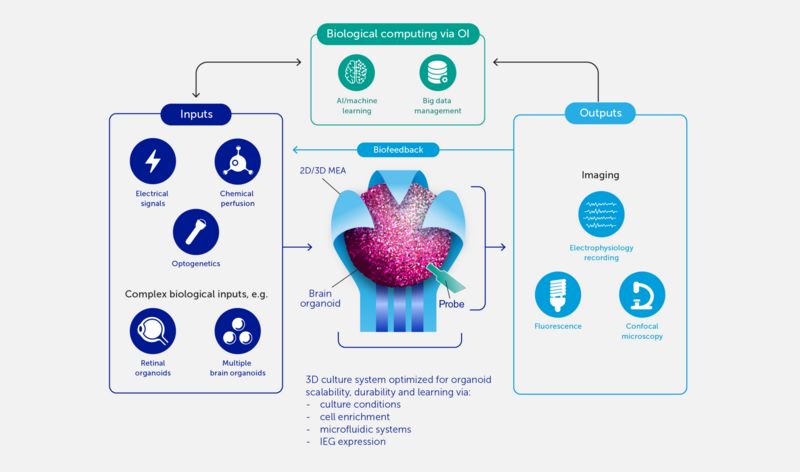
Frontiers in Science Lead Article
Published on 28 Feb 2023
Organoid intelligence (OI): the new frontier in biocomputing and intelligence-in-a-dish
- 287,870 views
- 173 citations
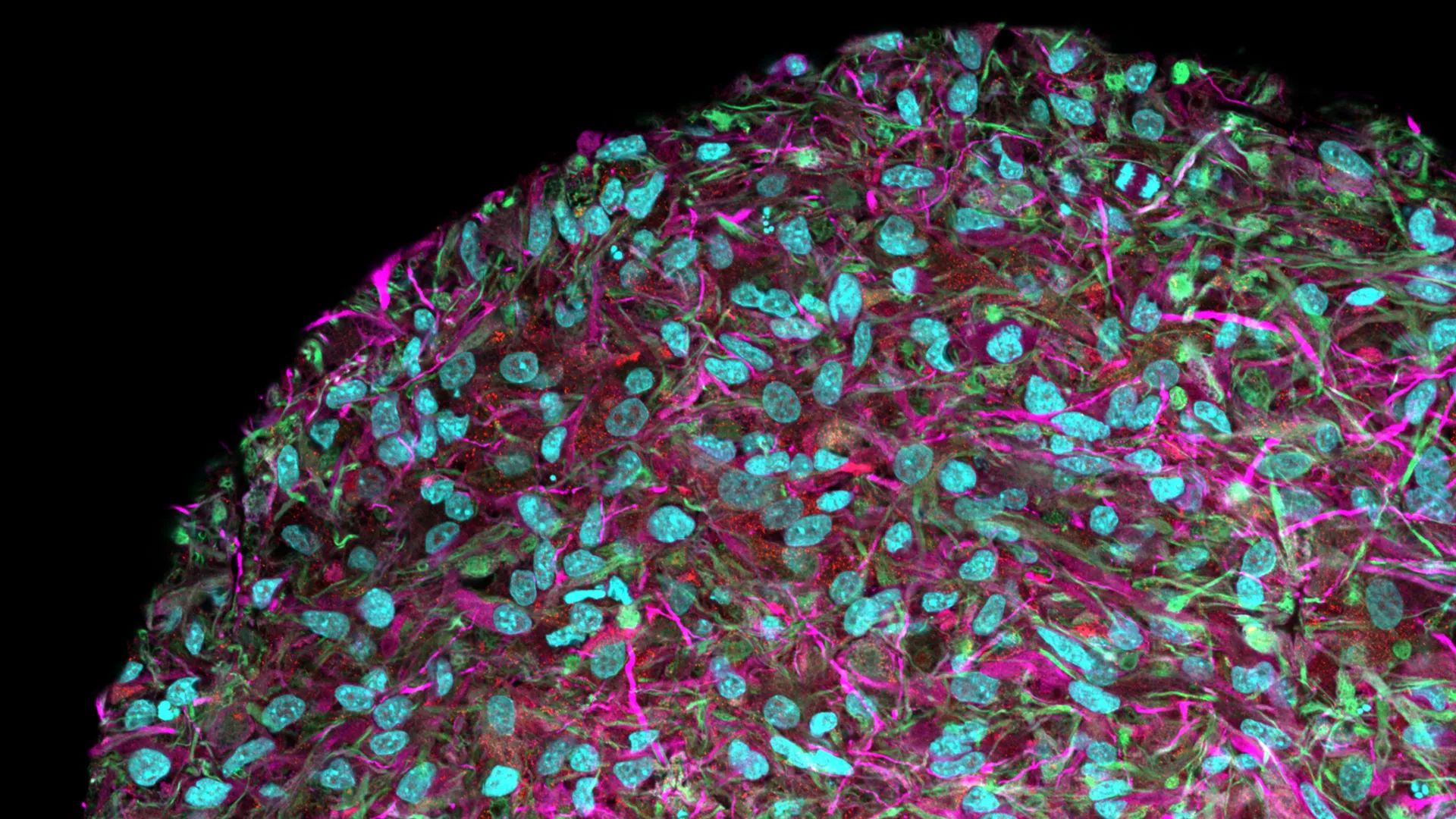

Frontiers in Science Lead Article
Published on 28 Feb 2023
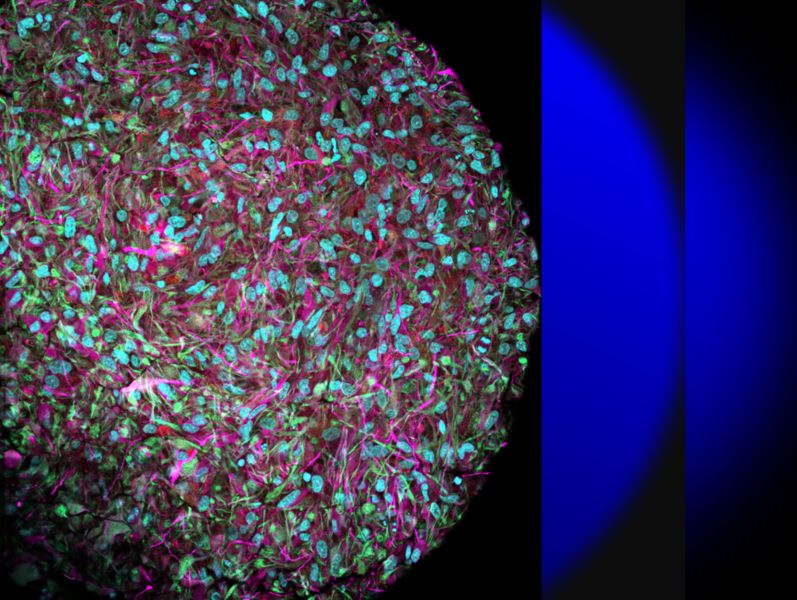
Prof Thomas Hartung, Dr Lena Smirnova, and other renowned researchers delved into the technologies and ethical considerations for developing organoid intelligence, at a Frontiers Forum Deep Dive session held on 21 June 2023.

Quebec Chief Scientist and President of INGSA, Prof Rémi Quirion, calls on policymakers, funding bodies, scientists, pharmaceutical companies, and the public to support the innovative approach of organoid intelligence.

Theoretical neuroscientist Prof Karl Friston, of University College London, discusses the potential for organoids as sentient artifacts with artificial generalized intelligence, as experimental models in neurobiology, and as in vitro patients.

Molecular neuroscience expert Prof Gary Miller, of Columbia University, considers whether complex brain cell culture systems can acquire or possess intelligence, and the potential of organoids to store and organize information within their DNA.

Prof Arti Ahluwalia and Dr Chiara Magliaro from the University of Pisa discuss potential challenges of brain organoids as supercomputers of the future.
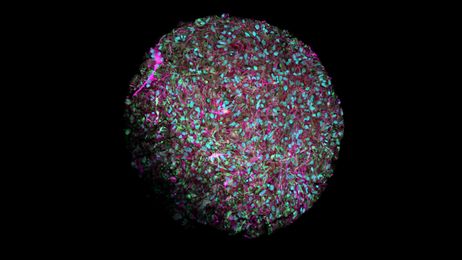
Researchers, including from Johns Hopkins University, the University of California, and Yale University, set out a vision for the international scientific community to collaborate on the world-changing potential of organoid intelligence.

Prof Julian Kinderlerer, of the University of Cape Town and past President of the European Group on Ethics in Science & New Technologies (EGE), explores ethical and legal issues around the use of brain organoids that may develop cognitive properties, such as human dignity and rights of both donors and organoids.
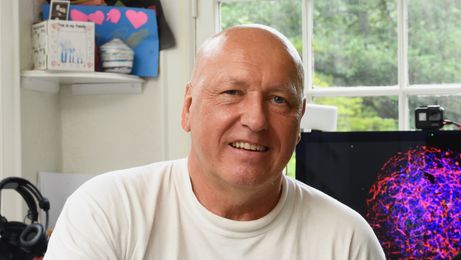
Prof Thomas Hartung from Johns Hopkins University explains how he became interested in organoid intelligence, how far we are from the first OI, and more.
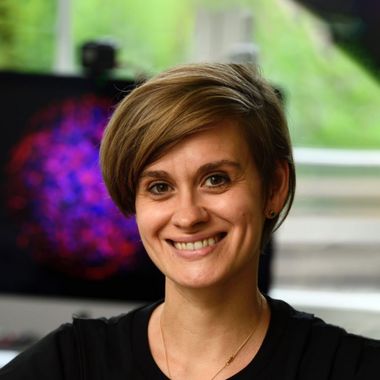
Read the inaugural article published in Organoid Intelligence, a new section of Frontiers in Artificial Intelligence. Led by Dr Lena Smirnova and open for submissions, the section focuses on new technologies bridging neuroscience and AI technologies.
Biological computing (or biocomputing) could be faster, more efficient, and more powerful than silicon-based computing and artificial intelligence, and only require a fraction of the energy.
‘Organoid intelligence’ (OI) describes an emerging multidisciplinary field working to develop biological computing using 3D cultures of human brain cells (brain organoids) and brain-machine interface technologies.
OI requires scaling up current brain organoids into complex, durable 3D structures enriched with cells and genes associated with learning, and connecting these to next-generation input and output devices and AI/machine learning systems.
OI requires new models, algorithms, and interface technologies to communicate with brain organoids, understand how they learn and compute, and process and store the massive amounts of data they will generate.
OI research could also improve our understanding of brain development, learning, and memory, potentially helping to find treatments for neurological disorders like dementia.
Ensuring organoid intelligence develops in an ethically and socially responsive manner requires an ‘embedded ethics’ approach where interdisciplinary and representative teams of ethicists, researchers, and members of the public identify, discuss, and analyze ethical issues and feed these back to inform future research and work.
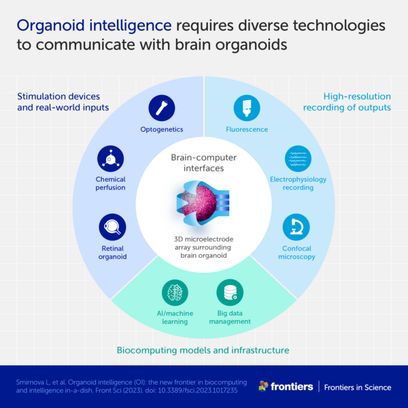
A summary of the lead article in a Q&A format, with a video and infographics.
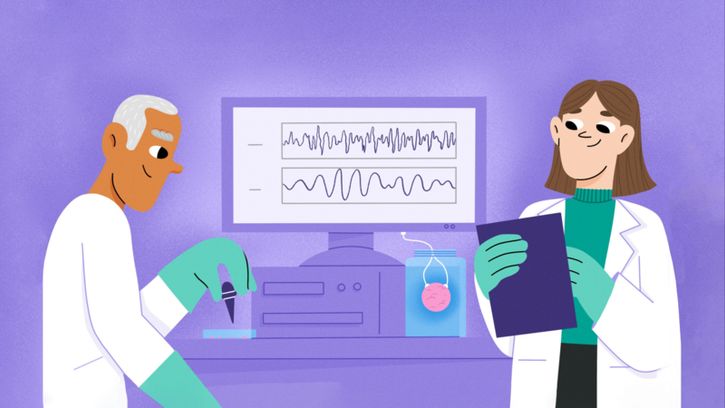
A version of the lead article written for – and peer reviewed by – kids aged 8-15 years.
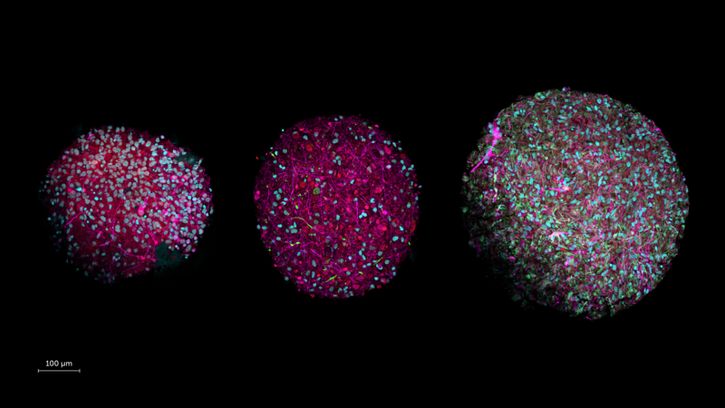
Scientists are developing a revolutionary biocomputing approach called organoid intelligence (OI), where lab-grown brain organoids serve as biological hardware.

Computers powered by human brain cells may sound like science fiction, but a team of researchers in the United States believes such machines, part of a new field called “organoid intelligence,” could shape the future — and now they have a plan to get there.

Proposal for ‘intelligence in a dish’ that can efficiently perform advanced tasks raises ethical concerns.

WSJ’s Alex Ossola explores the advantages, and potential issues, as scientists look to use brain organoids to test new medicines or even replace the chips in our computers.

Artificial intelligence seems to be taking over our lives lately, but a team of scientists argues that something called "organoid intelligence," or OI, powered by living human brain cells could one day outperform any artificial system, and do it far more efficiently.

New plans for biocomputers with "organoid intelligence" could be in the making.
Follow the science, follow Frontiers in Science